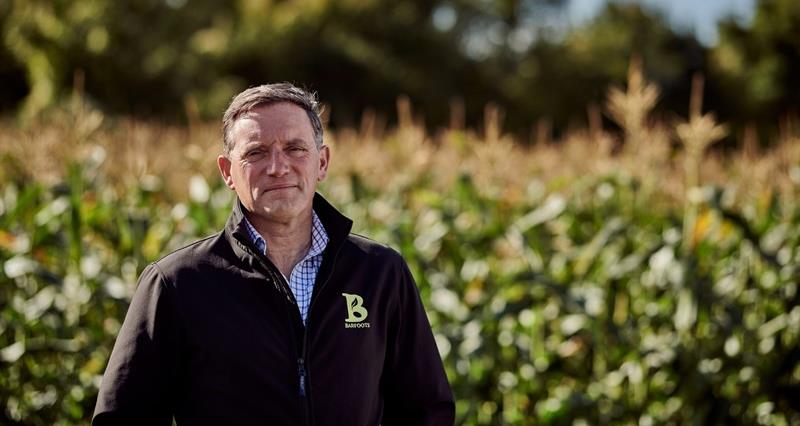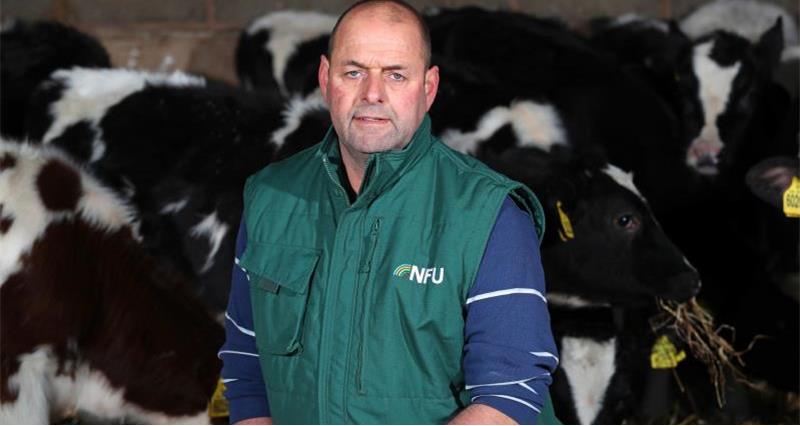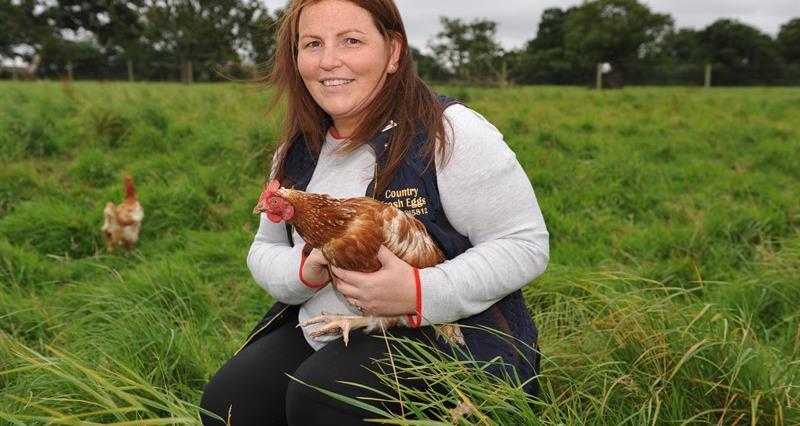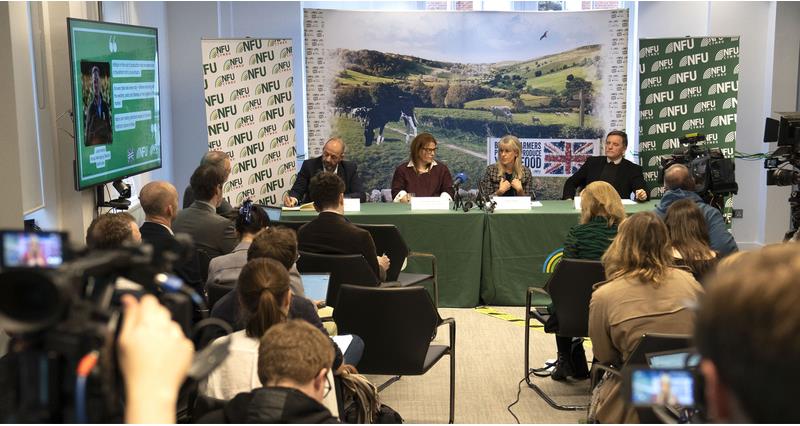With pictures of empty egg shelves and UK fruit and veg growers under massive pressure due to soaring energy costs and workforce shortages, other farming sectors could soon be under threat from immediate supply issues caused by a lack of fairness for farmers and growers throughout the supply chain.
In an emergency Fairness for farmers and growers press conference convened today NFU President Minette Batters outlined five of the NFU's urgent asks.
1 тАЬExceptional market conditionsтАЭ declaration
We need an urgent investigation by Defra into whether an тАЬexceptional market conditionsтАЭ declaration should be made under the Agriculture Act 2020, given the severe disruption that egg producers and UK consumers are experiencing.
2 Dairy contracts
Back in early 2021, the government announced it would regulate dairy contracts to enable fairer terms for dairy farmers, but this still hasnтАЩt happened. We need the government to progress with its plans to bring fairness in the dairy sector.
3 Increase availability of visas
Fruit and veg growers need fair treatment and confidence to invest and a commitment from government to lift the cap on the seasonal worker scheme to increase the number of visas available to meet the sectorтАЩs essential workforce needs.
4 Deliver on promises
British food and farming need to be a political priority.
Promises made by Prime Minister Rishi Sunak need to be delivered, in particular: by establishing a new food security target. This would include a statutory duty to monitor and report on domestic food production levels annually and to hold a UK-wide annual food security summit.
A new target should be introduced for public sector organisations to buy 50% of their food locally.
5 Vulnerable sector status
Agriculture and horticulture must be seen as a vulnerable sector in regard to energy security.
тАЬWe need government and the wider supply chain to act now тАУ tomorrow could well be too late.тАЭ
NFU President Minette Batters
British food is under threat
Minette Batters said: тАЬShoppers up and down the country have for decades had a guaranteed supply of high-quality affordable food produced to some of the highest animal welfare, environmental and food safety standards in the world. That food, produced with care by British farmers, is critical to our nationтАЩs security and success. But British food is under threat.
тАЬOnly last week, the former Director General of MI5, The Baroness Manningham-Buller, said that food is part of our critical national infrastructure and that government needs to be consistent in planning for our food supply. I couldnтАЩt agree more, particularly at a time when global volatility is threatening the stability of the worldтАЩs food production, food security and energy security.
тАЬWe have already seen the egg supply chain crippled under the pressure caused by these issues and I fear the country is sleepwalking into further food supply crises, with the future of British fruit and vegetable supplies in trouble. We need government and the wider supply chain to act now - tomorrow could well be too late.тАЭ
At the press conference, NFU President Minette Batters urged Prime Minister Rishi Sunak to honour the commitments he made to support British farmers through the energy crisis and to set a target for the nationтАЩs food security, with a statutory duty to report on domestic food levels.
The emergency press conference fell on the same day as NFU horticulture board members gathered for an extraordinary meeting about ongoing workforce shortages, and Defra held a crucial roundtable with representatives from the egg supply chain.
NFU in the media
╗╩╝╥╗к╚╦press team created a тАШmedia momentтАЩ to ensure the issue was highlighted by the national press. An emergency press conference was convened at the NFUтАЩs London office attended by over 30 journalists representing national newspapers, the main news broadcasters and farming trade titles.
There was an excellent turnout from the national and trade press at the conference. National broadcast attendees included Sky News, Channel 4 News, GB News, PA media, BBC Countryfile, LBC, TalkTV and Agence France-Presse (AFP). From the print and online national papers, journalists from The Times, Daily Telegraph, Guardian, Financial Times, iNews, Independent, Politico and Bloomberg News also came to the press conference.
In total, we have so far achieved more than 1,300 pieces of coverage.
The highlights:
cut away from a story about King Charles to take our press conference live while NFU President Minette Batters appeared on , and featured in stories on the BBC News One and Six bulletins, as well as doing interviews for and , as well as a number of BBC local radio stations.
Meanwhile, NFU Deputy President Tom Bradshaw spoke to and Vice President David Exwood was interviewed live on the BBC News Channel.
National newspaper coverage has been widespread in print and online including:
- Daily Star (only in print)┬а
There has been further online coverage on the , , , , , and .
Our three farmer and grower case studies, egg producer Victoria Shervington-Jones, NFU dairy board chair Michael Oakes and horticulture board member Julian Marks also spoke to Farmers Guardian and Farmers Weekly for their latest podcasts.
What are the issues?
The reason behind the issues is primarily due to complex supply chain issues but farmers have been hit with workforce shortages and soaring costs.
Energy
Since 2019 the price of wholesale gas has increased by 650%, according to , with nitrogen fertiliser up by 240% (source: ) and agricultural diesel up 73% (source: ).
According to NFU analysis animal feed raw material has increased by 75% (source: /.
Inflation
Farmers and growers have seen huge inflation over the last year, especially since the war in Ukraine. This is unrecognisable compared to 2019 тАУ considered to be the last тАШnormalтАЩ year.
The volatility and uncertainty in costs are as much a challenge as the costs themselves, as planning and budgeting have become impossible to any reliable degree.
This in turn, is fuelling a short-term view in the supply chain driven by the hope that costs will fall.
This is a real threat to longer-term supply security.
Below are some examples of how different farming and growing sectors have been affected.
Eggs
There are 4.9 million fewer hens laying eggs in the UK today compared to 2019 тАУ down 13% from 42.7 million to 37.8 million (source: NFU analysis of Defra data ).
This means in the last three months (Q3) of 2022 there were 320 million fewer eggs produced in the UK compared to the same three months (Q3) in 2019 (source: ).
Tomatoes and cucumbers
Production of these salad ingredients is expected to fall to the lowest levels since records began in 1985, according to NFU analysis.
In 1985 the UK produced 92,000 tonnes of tomatoes, but in 2021 just 68,000 tonnes were produced. Even less has been grown in 2022.
When it comes to cucumbers, 67,000 tonnes were produced in the UK in 1985 and that number is expected to be less than 55,000 tonnes for 2022.
(Source: )
Pears
UK pear production is at its lowest level since records began in 1985, a year when imports were 100K tonnes (source: Defra)
Sweet peppers
The huge growth in UK sweet pepper production in the UK is under threat, according to NFU analysis.
Production has been slowly falling since 2014 and is expected to drop significantly in 2022.
(Sources: )
Dairy
Rising costs may force farmers to reduce cow numbers to survive in response to short-term market signals, leading to longer-term structural supply issues.
Until now, dairy markets have supported producers to absorb increased production costs, but these costs are now тАШbakedтАЩ into dairy farming businesses for the foreseeable future.
Dairy farmers feared they would not be able to get feed or fertiliser for the next 12 months and had to make the tough decision to buy feed and agree contracts at inflationary prices.
Events in China are leading to weaker demand and market signals point to risks of falling milk prices, with some buyers already reducing prices.
Beef
In June 2021, the UK had 1.485m beef breeding cows, the lowest number since records began in 1996 (source: ).
Since 2019, UK beef production has fallen by 25,000 tonnes from 914,000 tonnes in 2019 to 889,000 tonnes in 2021 (.
Nearly 1 in 10 NFU members who produce beef said they were considering reducing the size of their herd in the next 12 months.
Horticulture businesses┬а
The Horticulture Inflation Report by Promar showed that many growers in England and Wales have already cut production in 2022 by as much as 20-30%.┬а More cuts are expected in 2023 with some businesses saying that in a worst-case scenario they may completely stop producing fruit and vegetables.
British food under threat: Farmer stories



